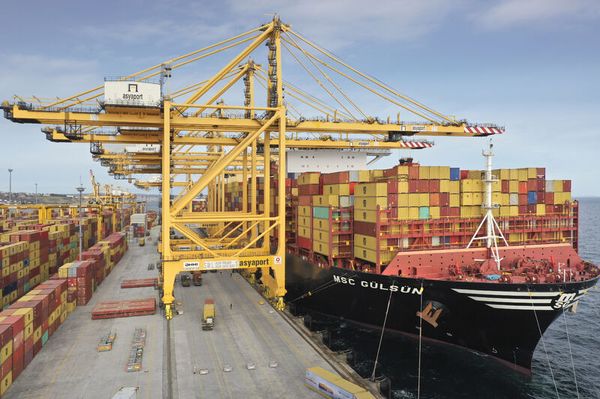MSC bets on biofuel to bring down emissions
Mediterranean Shipping Company (MSC) says biofuel is the only low carbon fuel that is readily available now and argues it can be widely used as a transitional fuel across its fleet without any engine modifications.
 PHOTO: MSC's containership MSC Gülsün was the largest ship in the world when it was launched in 2019. MSC
PHOTO: MSC's containership MSC Gülsün was the largest ship in the world when it was launched in 2019. MSC
MSC will buy used cooking oil methyl ester (UCOME) blended with conventional oil-based bunker fuels for customers requesting it. The biofuel component of the blend can reduce carbon emissions by 90%, MSC claims.
Bio-bunkers is usually blended in a 20-30% ratio, with fuel oil or gasoil making up the lion's share. MSC has previously said it has trialled blends with up to 47% biofuel.
Environmental NGO Transport & Environment (T&E) ranked MSC as the EU's sixth and seventh biggest carbon emitter in 2020 and 2019, respectively. It emitted 10.9 million mt of carbon dioxide from all of its voyages to and from EU ports in 2020, T&E wrote in a report citing EU MRV data, which monitors carbon emissions from shipping.
The Geneva-based shipowner later pushed back on these claims, saying the 2019 data did not adjust for the carbon dioxide actually emitted in the geographical area of the EU, and that its real EU emissions were less than half of what could be derived from the EU MRV data.
MSC, which overtook Maersk to become the world's biggest container liner by TEU capacity earlier this year, has said its fleet has become more energy efficient over the past two decades. After its megaship MSC Gülsün was launched in 2019, MSC estimated it had one of the world’s lowest carbon dioxide emissions per 1 mt of cargo moved over a nautical mile while burning oil as fuel.






